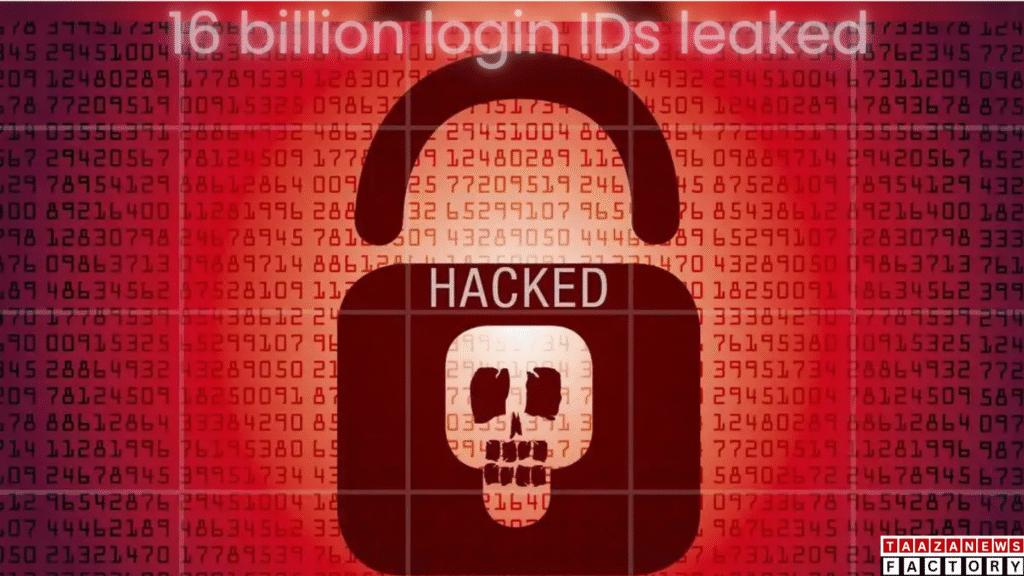A shocking cyber security news has come to light! A large research team named Cybernews has reported that more than 16 billion login information (usernames and passwords) have been leaked online worldwide. This also includes accounts of big platforms like Google, Facebook and Apple.
Check fast for the first news of Business & Finance on this WhatsApp channel
How did this data leak?
According to the Cybernews report, this data has not been leaked from any single hacking. Rather, it has been collected from many small and big data theft incidents (data breach). All this information was available online for some time in 30 large datasets, which the researchers found.
How big is this number?
The number of 16 billion is really scary. This is twice the population of the earth! This means that the login information of many accounts of the same person can be leaked. However, this data may also contain a lot of duplicate (similar) information, so it is not clear how many people have actually been affected.
Who is responsible for this?
According to CyberNews, this may be the work of a dangerous software called Infostealer. This is a type of malware (dangerous software), which secretly enters any device and steals your important information like login ID, password, and bank details.

What to do now? How to avoid it?
If you are also worried thinking whether your account is also a part of this leak, then definitely follow these cyber security tips:
- Change your password immediately: Change the password of all your important sites (like Gmail, Facebook, banking etc.) immediately.
- Keep a different password for every site: Do not use the same password again and again. This will ensure that even if one account gets hacked, the rest will remain safe.
- Use a password manager: If remembering multiple passwords is difficult, you can use a password manager app (like Bitwarden, 1Password, Dashlane).
- Turn on two-factor authentication (2FA): This will require another verification (like an OTP or app alert) in addition to your password to login.
- Avoid untrusted websites: Think before opening any free software or links. Unknown emails or downloads can lead to viruses entering your system.
Additional tips:
- You can visit a website like haveibeenpwned.com to check if your email has been a part of any data breach.
- According to cyber experts, it is a good habit to change passwords every 3-6 months.
- If you make online payments, use virtual cards or UPI facilities, which are considered more secure.
Check fast for the first news of Business & Finance on this WhatsApp channel
Frequently Asked Questions (FAQs)
- How do I know if my password has been leaked?
- You can check by visiting haveibeenpwned.com and entering your email.
- Is it safe to use the same password on multiple sites?
- No, this can put all accounts at risk at once.
- What is a password manager and is it safe?
- It is an app that stores all passwords securely — and yes, it is safe.
- What is the benefit of two-factor authentication?
- It gives an extra security to your account.
- Can passwords be leaked from mobile phones too?
- Yes, if an infostealer virus has entered it, then data can be stolen from mobile phones too.
Also Read:
Swara Bhaskar’s net worth: Owner of crores, charges such a huge amount for a film
Tilak Varma Net Worth: Earnings in crores from cricket and journey to a luxurious lifestyle



